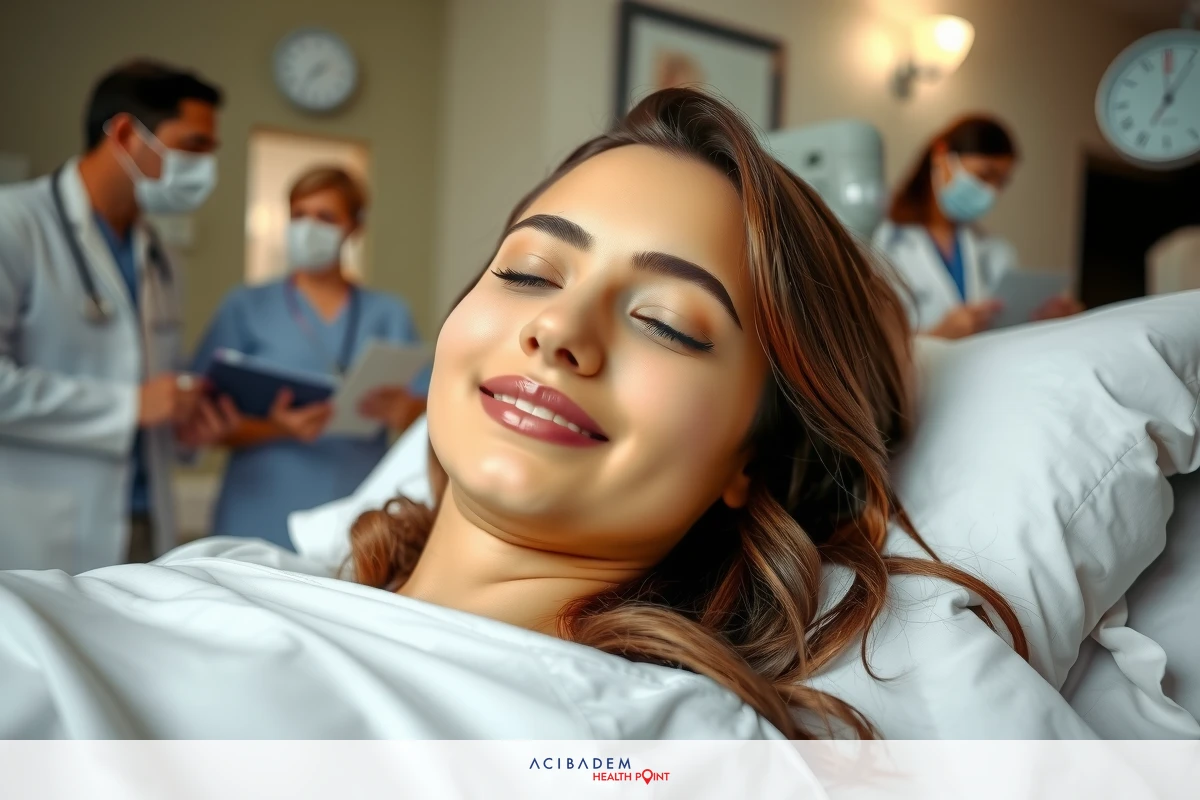Can You Get a Rhinoplasty While Pregnant
Can You Get a Rhinoplasty While Pregnant Pregnancy is an exceptional time in a woman’s life, marked by physical and emotional changes. One question that may arise during this period revolves around the safety of cosmetic interventions like rhinoplasty. A delicate balance must be struck between personal desires for aesthetic improvements and the wellbeing of both mother and child.
Rhinoplasty, or nose reshaping surgery, poses certain challenges when considered during pregnancy. It’s crucial to understand these complexities before making any decisions. Consulting healthcare professionals — obstetricians, general practitioners, plastic surgeons — provides critical insights into potential risks and safe alternatives.
Is Rhinoplasty Safe During Pregnancy?
Rhinoplasty, often referred to as a nose job, is an intricate procedure requiring precise surgical skills. It involves the reshaping of bone, cartilage and soft tissues in the nasal region. The question concerning its safety during pregnancy hinges on numerous factors that demand careful evaluation.
Anesthesia is indispensable for any invasive cosmetic surgery like rhinoplasty. Pregnant women under general anesthesia may experience changes in blood pressure that could potentially disrupt blood flow to the fetus causing undue stress. Additionally, drugs used during anesthesia can cross the placental barrier and might have unknown effects on fetal development.
Post-operative recovery from a rhinoplasty procedure presents another layer of complexity for pregnant women. Pain management usually includes prescription medications which also carry potential risks for the unborn child due to substance transmission through the placenta. Furthermore, swelling and bruising – common aftereffects of this form of cosmetic surgery – could add additional physical discomfort to an already burdened body coping with pregnancy-related changes.
Prospective patients should be aware that hormonal fluctuations during pregnancy can affect tissue flexibility and responsiveness thereby altering surgical outcomes unpredictably. This poses unique challenges for surgeons striving for optimal aesthetic results while prioritizing patient safety.
In light of these considerations medical advice leans towards postponing elective surgeries such as rhinoplasties until after childbirth when possible . Nonetheless individual circumstances vary widely necessitating detailed discussions between patient and healthcare provider before making any final decisions regarding undergoing such procedures while pregnant.
Consulting Your Healthcare Provider
Navigating the intricate landscape of cosmetic surgery during pregnancy necessitates guidance from experienced healthcare providers. Every woman’s body responds to pregnancy differently, and what might be a minor issue for one could become a significant concern for another. Hence, personalized medical advice becomes paramount when contemplating procedures like rhinoplasty while pregnant.
Consultation with an obstetrician or general practitioner should ideally preface any conversations about cosmetic surgery during pregnancy. These professionals possess first-hand knowledge of your health history and can offer informed perspectives on how surgical stressors may impact both you and your baby. They are equipped to identify potential risks associated with anesthesia, post-operative recovery medications, hormonal variations affecting surgical outcomes, and even subtle shifts in blood pressure.
However, consulting a plastic surgeon is equally vital before making any decisions regarding rhinoplasty during

pregnancy. With their specialized expertise in cosmetic procedures, they can provide detailed insights into the technical aspects of the surgery under consideration along with its probable impacts on aesthetic results given your specific condition as an expectant mother.
In essence, thorough consultations with healthcare providers bridge the gap between personal desire for physical enhancements via surgeries such as rhinoplasties and ensuring safety during pregnancy. This collaboration not only addresses concerns but also uncovers viable alternatives thus enabling well-informed decision-making processes that prioritize individual wellbeing alongside aesthetic aspirations.
Alternative Options for Enhancing Appearance
While the desire to enhance one’s appearance during pregnancy is completely understandable, safety should always take precedence. With the potential risks associated with invasive procedures like rhinoplasty while pregnant, exploring alternative options becomes a prudent course of action. These alternatives could offer desired results without subjecting yourself and your unborn child to undue stress.
- Skincare Regimens: A well-planned skincare regimen can do wonders in enhancing your appearance. Pregnancy-safe products focusing on hydration and elasticity can help maintain skin radiance.
- Makeup Techniques: The art of contouring using makeup offers an excellent non-invasive way to alter facial features temporarily.
- Facial Exercises: Regularly practicing certain facial exercises may assist in toning muscles around the nose and potentially altering its shape over time.
- Healthy Lifestyle Choices: Maintaining a balanced diet rich in vitamins, regular exercise (as recommended by your healthcare provider), ample sleep, and proper hydration contribute significantly towards overall physical appeal.
- Non-Invasive Cosmetic Procedures: Certain non-surgical treatments such as microdermabrasion or chemical peels might be safe during pregnancy but always consult with professionals before proceeding.
Remember that each option carries its unique considerations; therefore, discussing these alternatives with healthcare providers ensures their suitability given individual health histories and current conditions during pregnancy. As beauty is subjective so are methods of achieving it – embracing this diversity allows for solutions that prioritize both aesthetics aspirations and wellbeing simultaneously.
Frequently Asked Questions
Q: Can I undergo rhinoplasty at any stage of pregnancy? A: The safety concerning the timing of a rhinoplasty during pregnancy depends on numerous variables. Therefore, it is strongly advised to consult with your healthcare provider before making any decisions.
Q: Are there risks associated with anesthesia while pregnant and considering cosmetic surgery? A: Yes, general anesthesia can cause fluctuations in blood pressure which might disrupt blood flow to the fetus causing undue stress. Also, drugs used during anesthesia can cross the placental barrier possibly affecting fetal development.
Q: What non-surgical alternatives exist for enhancing my appearance during pregnancy? A: There are several non-invasive ways ranging from skincare routines, makeup techniques, facial exercises to certain cosmetic procedures like microdermabrasion or chemical peels that might be safe during pregnancy but always remember to consult professionals beforehand.
Q: Is it possible that hormonal changes due to pregnancy affect the outcome of my rhinoplasty procedure? A: Hormonal fluctuations do influence tissue flexibility and responsiveness which may unpredictably alter surgical outcomes. It’s recommended discussing this aspect comprehensively with your plastic surgeon before proceeding.








